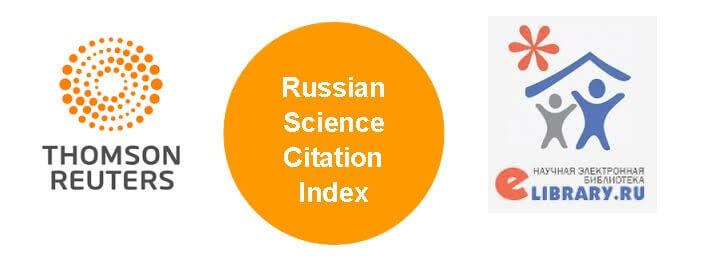Growing epitaxial layers of InP/InGaAsP heterostructures on the profiled InP surfaces by liquid-phase epitaxy
Abstract
The effect of various planes was studied when growing epitaxial layers by liquid-phase epitaxy (LPE) on the profiled InP substrates. The studies allowed obtaining buried heterostructures in the InP/InGaAsP system and creating highly efficient laser diodes and image sensors.
It was found that protruding mesa strips or in-depth mesa strips in the form of channels formed by the {111}А, {111}B, {110}, {112}A, or {221}A family of planes can be obtained with the corresponding selection of an etching agent, strip orientation, and a method of obtaining a masking coating. It was noted that in the case of the polarity of axes being in the direction of <111>, the cut of mesa strips was conducted along the most densely packaged planes. This cut led to the difference in rates of both chemical etching and epitaxial burying of profiled surfaces.
The cut was made along the planes at a low dissolution rate {111}A for a sphalerite lattice, to which the studied material, indium phosphide, belongs. Analysis of planes {110} and {Ī10} showed that the location of the most densely packaged planes {111}A and {111}B relative to them is different.
Downloads
References
Andreev D. S., Boltar K. O., Vlasov P. V., Irodov N. A., Lopuhin A. A. Investigation of planar photodiodes of a focal plane array based on a heteroepitaxial InGaAs/InP structure. Journal of Communications Technology and Electronics. 2016;61(10): 1220–1225. https://doi.org/10.1134/S1064226916100028
Kong J., Ouyang X. W., Zhou A., Yuan L. B. Highly sensitive directional bending sensor based on eccentric core fiber Mach–Zehnder modal interferometer. IEEE Sensors Journal. 2016;16 (18): 6899–6902. https://doi.org/10.1109/jsen.2016.2589262
Khan M. Z. M., Ng T. K., Ooi B. S. High-Performance 1.55-mu m superluminescent diode based on broad gain InAs/InGaAlAs/InP quantum dash active region. IEEE Photonics Journal. 2014;6(4): 1–8. https://doi.org/10.1109/jphot.2014.2337892
Eichler H. J., Eichler J., Lux O. Semiconductor lasers. In: Lasers. Springer Series in Optical Sciences. Vol 220. Springer, Cham.; 2018. p. 165–203. https://doi.org/10.1007/978-3-319-99895-4_10
Guin S., Das N. R. Modeling power and linewidth of quantum dot superluminescent light emitting diode. Journal of Applied Physics. 2020;128(8): 083102. https://doi.org/10.1063/1.5131550
Sychikova Ya. A. Nanorazmernye struktury na poverkhnosti fosfida indiya [Nanoscale structures on the surface of indium phosphide]. LAP Lambert Academic Publishing; 2014. 132 p. (In Russ.)
Lei P. H., Yang C. D., Wu M., et al. Optimization of active region for 1.3-µm GalnAsP compressive strain multiple-quantum-well ridge waveguide laser diodes. Journal of Electronic Materials. 2006;35(2): 243–249. https://doi.org/10.1007/BF02692442
Emelyanov V. M., Sorokina S. V., Khvostikov V. P., Shvarts M. Z. Simulation of the characteristics of InGaAs/InP-based photovoltaic laser-power converters. Semiconductors. 2016;50(1): 132–137. https://doi.org/10.1134/S1063782616010097
Andreeva E. V., Ilchenko S. N., Ladugin M. A., Marmalyuk A. A., Pankratov K. M., Shidlovskii V. R., Yakubovich S. D. Superluminescent diodes based on asymmetric double-quantum-well heterostructures. Quantum Electrincs. 2019;49(10): 931–935. https://doi.org/10.1070/qel17071
Saidov A. S., Usmonov Sh. N., Saidov M. S. Liquid-phase epitaxy of the (Si2)1−x−y(Ge2)x(GaAs) y substitutional solid solution (0 ≤ x ≤ 0.91, 0 ≤ y ≤ 0.94) and their electrophysical properties. Semiconductors. 2015;49(4): 547–50. https://doi.org/10.1134/s106378261504020x
Vorotyntsev V. M., Skupov V. D. Bazovye tekhnologii mikro- i nanoelektroniki [Basic technologies of micro-and nanoelectronics]. Prospekt Publ.; 2017. 520 p. (In Russ.)
Preobrazhenskii V. V., Putyato M. A., Semyagin B. R. Measurements of parameters of the lowtemperature molecular-beam epitaxy of GaAs. Semiconductors. 2002;36(8): 837–840. https://doi.org/10.1134/1.1500455
Abramkin D. S., Bakarov A. K., Putyato M. A., Emelyanov E. A., Kolotovkina D. A., Gutakovskii A. K., Shamirzaev T. S. Formation of low-dimensional structures in the InSb/AlAs heterosystem. Semiconductors. 2017;51(9): 1233–1239. https://doi.org/10.1134/s1063782617090020
Akchurin R. Kh., Marmalyuk A. A. MOSgidridnaya zpitaksiya v tekhnologii materialov fotoniki i elektroniki [MOS-hydride absorption in photonics and electronics materials technology]. Tekhnosfera Publ.; 2018. 487 p. (In Russ.)
Gagis G. S., Vasil’ev V. I., Levin R. V., Marichev A. E., Pushnyi B. V., Kuchinskii V. I., Kazantsev D. Yu., Ber B. Ya. Investigation of the effect of doping on transition layers of anisotype GaInAsP and InP heterostructures obtained by the method of MOCVD. Technical Physics Letters. 2020;46: 961–963. https://doi.org/10.1134/S1063785020100053
Hasan S., Richard O., Merckling C., Vandervorst W. Encapsulation study of MOVPE grown InAs QDs by InP towards 1550 nm emission. Journal of Crystal Growth. 2021;557: 126010. https://doi.org/10.1016/j.jcrysgro.2020.126010
Vasil’ev M. G., Izotov A. D., Marenkin S. F., Shelyakin A. A. Preparation of shaped indium phosphide surfaces for edge-emitting devices. Inorganic Materials. 2019;55(1): 105–108. https://doi.org/10.1134/s0020168519010175
Mamutin V. V., Ilyinskaya N. D., Bedarev D. A., Levin R. V., Pushnyi B. V. Study of postgrowth processing in the fabrication of quantum-cascade lasers. Semiconductors. 2014;48(8): 1103–1108. https://doi.org/10.1134/s1063782614080181
Vasil’ev M. G., Vasil’ev A. M., Kostin Yu. O., Shelyakin A. A. and Izotov A. D. Study of linear light edge-emitting diodes based on InP/InGaAsP/InP heterostructure with the crescent active region. Inorganic Materials: Applied Research. 2018;9(5): 813–816. https://doi.org/10.1134/S2075113318050295
Vasil’ev M. G., Vasil’ev A. M., Vilk D. M., Shelyakin A. A. LPE growth of InP/InGaAsP/InP heterostructures and separate preparation of hightemperature solutions. Inorganic Materials. 2007;43(7): 683–688. https://doi.org/10.1134/s0020168507070011
Blank T. V., Gol’dberg Yu. A. Mechanisms of current flow in metal-semiconductor ohmic contacts. Semiconductors. 2007;41(11): 1263–1292. https://doi.org/10.1134/s1063782607110012
Vasil’ev M. G., Vasil’ev A. M., Izotov A. D., Shelyakin A. A. Preparation of indium phosphide substrates for epilayer growth. Inorganic Materials. 2018;54(11): 1109–1112. https://doi.org/10.1134/s0020168518110158
Copyright (c) 2021 Kondensirovannye sredy i mezhfaznye granitsy = Condensed Matter and Interphases

This work is licensed under a Creative Commons Attribution 4.0 International License.













